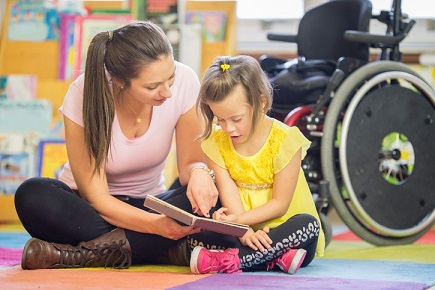
In April, Prime Minister Scott Morrison announced a royal commission into disability to address long-standing systemic issues around the treatment of Australia’s most vulnerable people.
Throughout Australia’s schools, this issue has caused consternation among principals who are concerned about how they can provide sufficient support and safeguards for these students.
In 2018, Queensland’s private schools enrolled 11,862 students with a disability, representing 19% of the sector’s student population. Most of these students attend mainstream Independent schools although more than 8,000 attend one of the 121 special schools in the sector.
Special schools, including Special Assistance Schools, provide alternative educational settings for students with high-level needs and cater for students with disability, as well as students who are at risk, have behavioural difficulties, or whose needs are better met by flexible learning structures that may not be available in all mainstream schools.
Community demand for schools dedicated to the education of disengaged and at-risk young people is driving ongoing growth in these specialist services in Queensland’s independent schooling sector.
About 1 in 10 of Queensland’s 212 independent schools is now accredited as a Special Assistance School (SAS), according to Independent Schools Queensland (ISQ).
The February 2019 census of non-state schools revealed there are now 21 independent SAS schools operating across 30 campuses from the Gold Coast to Cape York. This is three times as many schools and four times as many campuses as there were in 2013.
Student numbers have also increased over the same six-year period from 536 in 2013 to 1,893 in 2019. These students represent 1.5 percent of the 124,000 students currently enrolled in Queensland independent schools.
Numbers will continue to increase with a new independent SAS school approved to commence in Mackay this year and a further six campuses at existing schools approved to open in 2020.
This growth was recently reflected in the attendance of more than 260 independent school staff at a special SAS forum hosted by Independent Schools Queensland (ISQ) in Brisbane on Friday.
ISQ acting executive director, Mark Newham, said while the traditional school model served the majority of students well, it wasn’t the right environment for some students, particularly those who had experienced adversity or trauma.
He says SAS schools took a more flexible and individualised approach to education that built students’ resilience, independence and confidence while equipping them with the knowledge and skills they need to succeed in life.
“These schools have small class sizes and are staffed by welfare workers, counsellors and educators who work together to create a safe and positive environment that draws out student strengths and empowers them to create a better future for themselves,” Newham said.
“This can be very challenging and confronting work for the dedicated employees of these schools, but it can also be incredibly rewarding when students’ lives change for the better.”
ISQ supports SAS schools in their education missions through initiatives such as today’s forum which features presentations by:
- Neuroscience educator Nathan Wallis on adolescent brain development, decision-making and how to help teenagers manage their own stress and anxiety
- La Trobe University academics Carmel Hobbs and Dane Paulsen on strategies to improve student engagement
- Sarah Ralston from Rebooting Education on the importance of self-care strategies for staff
- Carinity Education - Southside Teacher Nicole Williams on fostering cultural safety and community for Aboriginal and Torres Strait Islander students.


